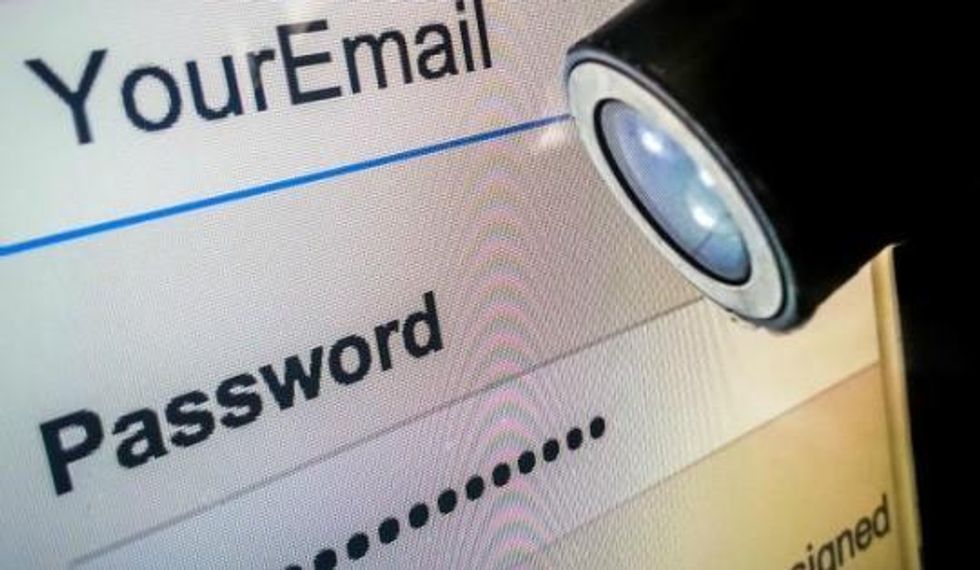Sep 30, 2013

In an exclusive interview with The Guardian, this pioneer in internet privacy warned that the dangers of metadata surveillance go beyond mass-scale aggregation. Metadata can also be collected on an individual level to monitor and go after journalists' sources. He explains:
You're a journalist for the Guardian. You know that the Guardian sometimes writes stories that are of great interest to intelligence agencies. Well, what if the intelligence agencies want to see if a journalist at the Guardian is talking to a particular sensitive source?
You don't have to do a lot of data mining for that. All you have to do is find that so-and-so, some government employee, is talking to some journalist at the Guardian. Then somebody's in a heap of trouble.
PGP was created by Zimmermann in 1991 as an encrypted, more private alternative to commercial email communications. He has developed a host of other privacy technologies as well, including an app for encryption smart phone calls.
In early September it was revealed that the NSA had virtually defeated encryption safeguards to protect online privacy, by breaking code and controlling and manipulating technology companies.
_____________________
An Unconstitutional Rampage
Trump and Musk are on an unconstitutional rampage, aiming for virtually every corner of the federal government. These two right-wing billionaires are targeting nurses, scientists, teachers, daycare providers, judges, veterans, air traffic controllers, and nuclear safety inspectors. No one is safe. The food stamps program, Social Security, Medicare, and Medicaid are next. It’s an unprecedented disaster and a five-alarm fire, but there will be a reckoning. The people did not vote for this. The American people do not want this dystopian hellscape that hides behind claims of “efficiency.” Still, in reality, it is all a giveaway to corporate interests and the libertarian dreams of far-right oligarchs like Musk. Common Dreams is playing a vital role by reporting day and night on this orgy of corruption and greed, as well as what everyday people can do to organize and fight back. As a people-powered nonprofit news outlet, we cover issues the corporate media never will, but we can only continue with our readers’ support. |
Our work is licensed under Creative Commons (CC BY-NC-ND 3.0). Feel free to republish and share widely.
Sarah Lazare
Sarah Lazare was a staff writer for Common Dreams from 2013-2016. She is currently web editor and reporter for In These Times.

In an exclusive interview with The Guardian, this pioneer in internet privacy warned that the dangers of metadata surveillance go beyond mass-scale aggregation. Metadata can also be collected on an individual level to monitor and go after journalists' sources. He explains:
You're a journalist for the Guardian. You know that the Guardian sometimes writes stories that are of great interest to intelligence agencies. Well, what if the intelligence agencies want to see if a journalist at the Guardian is talking to a particular sensitive source?
You don't have to do a lot of data mining for that. All you have to do is find that so-and-so, some government employee, is talking to some journalist at the Guardian. Then somebody's in a heap of trouble.
PGP was created by Zimmermann in 1991 as an encrypted, more private alternative to commercial email communications. He has developed a host of other privacy technologies as well, including an app for encryption smart phone calls.
In early September it was revealed that the NSA had virtually defeated encryption safeguards to protect online privacy, by breaking code and controlling and manipulating technology companies.
_____________________
Sarah Lazare
Sarah Lazare was a staff writer for Common Dreams from 2013-2016. She is currently web editor and reporter for In These Times.

In an exclusive interview with The Guardian, this pioneer in internet privacy warned that the dangers of metadata surveillance go beyond mass-scale aggregation. Metadata can also be collected on an individual level to monitor and go after journalists' sources. He explains:
You're a journalist for the Guardian. You know that the Guardian sometimes writes stories that are of great interest to intelligence agencies. Well, what if the intelligence agencies want to see if a journalist at the Guardian is talking to a particular sensitive source?
You don't have to do a lot of data mining for that. All you have to do is find that so-and-so, some government employee, is talking to some journalist at the Guardian. Then somebody's in a heap of trouble.
PGP was created by Zimmermann in 1991 as an encrypted, more private alternative to commercial email communications. He has developed a host of other privacy technologies as well, including an app for encryption smart phone calls.
In early September it was revealed that the NSA had virtually defeated encryption safeguards to protect online privacy, by breaking code and controlling and manipulating technology companies.
_____________________
We've had enough. The 1% own and operate the corporate media. They are doing everything they can to defend the status quo, squash dissent and protect the wealthy and the powerful. The Common Dreams media model is different. We cover the news that matters to the 99%. Our mission? To inform. To inspire. To ignite change for the common good. How? Nonprofit. Independent. Reader-supported. Free to read. Free to republish. Free to share. With no advertising. No paywalls. No selling of your data. Thousands of small donations fund our newsroom and allow us to continue publishing. Can you chip in? We can't do it without you. Thank you.